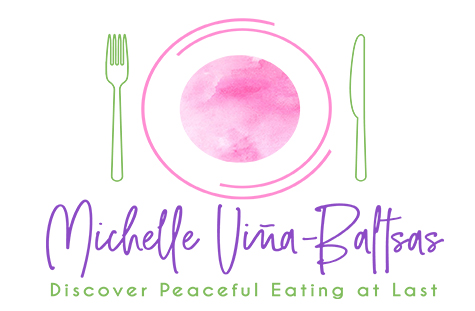I want to talk about the illusion of moderation.
People often say that intuitive eating is just 'eating in moderation'. I often cringe when I hear folks say this and here's why.
While 'eating in moderation' usually allows all foods, that allowance often has strings attached. In other words, while there is an allowance, it's a conditional allowance that equates to emotional restriction.
So, for example, folks allow themselves to eat ice cream, pizza, chips, bread, etc. but they may only allow a certain amount of it or only allow it under certain conditions. If they go beyond what they deem as a 'moderate' amount (whatever that is because 'moderation' is completely subjective) they'll create a narrative that they cannot be trusted around X food because it makes them feel out of control.
Have you ever experienced this before? I know I have in years past!
Having 'allowance clauses' around foods damages our relationships with food and body because they:
Erode trust in our body’s innate appetite regulation system - Given the opportunity (provided there is no extenuating circumstance), our bodies are fully capable of guiding our food choices, amounts, frequency, etc. When we interfere by trying to control our bodies, oftentimes they respond with dysregulated eating behaviors including bingeing, restrictive eating, frequently eating past a comfortable fullness, 'emotional' eating, etc.
Create a sense of food scarcity - Imposed food scarcity often puts us back into the diet/binge cycle because our brains perceive that there is a limited amount of food so we better get it while it's available often causing the same eating behaviors mentioned in #1 above.
I often remind my clients that the effects of scarcity on the human brain were seen during the COVID toilet paper debacle. In the U.S., toilet paper was scarce so many hoarded it like squirrels hoard acorns in the fall preparing for the winter because they were afraid there wouldn't be enough to go around! This is what happens when food is scarce too.
This makes so much sense to me and is likely why I have such a visceral reaction when I hear people saying that they don't diet but instead 'eat in moderation'.
I also understand that certain medical conditions sometimes require dietary modifications because I'm experiencing this myself.
Do you know what makes medically necessary dietary modifications easier?
Investing the time and energy to heal our relationships with food, body, and movement.
We can trust that our bodies will guide us so we don't need to have 'allowance clauses' around food even if there are medical conditions to contend with.




